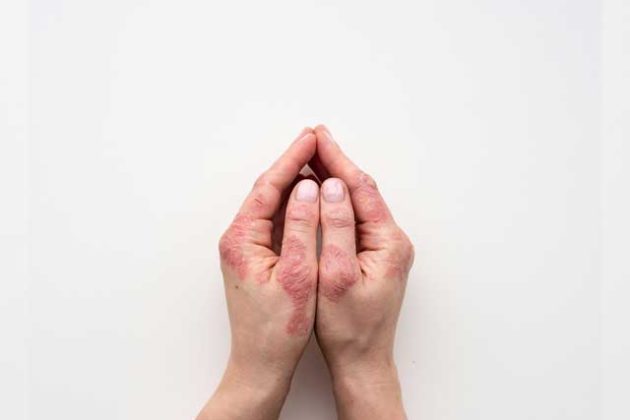Keto4cells
Effect of cetoleic acid on psoriasis

In this project we will investigate the interaction between cetoleic acid from fish oil and reduced development of psoriasis using in vitro cell models.
Start
01. May 2023
End
30. Apr 2025
Funded by
FHF – Norwegian Seafood Research Fund
Cooperation
Queen Mary University of London
Project Manager(s):
Other Participants:
Mona Elisabeth Pedersen
Bente Ruyter
Sissel Rønning
Marta Bou Mira
Esmail Lutfi Royo
Astrid Nilsson
Background
Psoriasis is a complex chronic inflammatory skin disorder characterised by red, flaky rashes over large parts of the body.
Fish oils contain the polyunsaturated omega-3 fatty acids EPA and DHA, which have been shown in several studies to have a dampening effect on psoriasis outbreaks, most likely through increased formation of immunosuppressive bioactive lipids from EPA and DHA. Different levels of these bioactive lipids have been found in healthy and psoriasis patients, supporting this hypothesis. In addition to EPA and DHA, fish oil such as herring oil, contains high levels of the long monounsaturated fatty acid cetoleic acid, which has been shown to have a stimulating effect on the conversion of alpha-linolenic acid to EPA and DHA.
Previous studies have indicated that long monounsaturated fatty acids have a dampening effect on inflammation, while high fat levels in cells have the opposite effect, but the mechanisms of the response are not known.
This project will conduct studies with cetoleic acid in order to investigate whether this is a functional marine fatty acid with a dampening effect on the inflammation that occurs during psoriasis outbreaks, with or without a connection to elevated fat levels in cells. The project will use both human psoriasis skin and obesity cell models to study the underlying mechanisms involved in psoriasis outbreaks and the effects of cetoleic acid.
Goal
The main objective of the project is to understand the correlations between cetoleic acid and the reduced development of psoriasis using in vitro cell models.
Files and Links